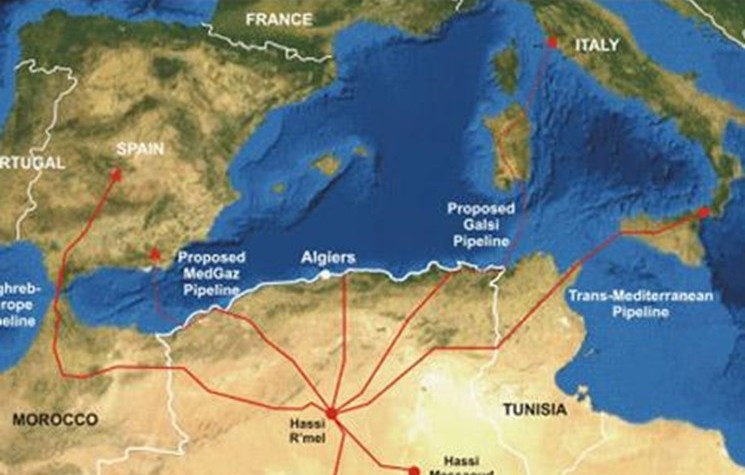Petroceltic International moves on from boardroom battles as Ain Tsila moves ahead

After a turbulent few months battling dissident shareholders and managing boardroom fall-out, this week saw Petroceltic International return its focus to operational matters. The AIM-quoted E&P, which discovered, appraised and readied for development the giant Ain Tsila gas-condensate field in Algeria, has announced that another key contract award has been made to keep this flagship project on track for first gas in 2018.
Groupement Isarene – the joint operating organisation pulled together by Petroceltic and which includes Algerian energy giant Sonatrach and Italy’s Enel – has now awarded the development drilling contract to SINOPEC. The Chinese oil major will use a new 1500 hp rig to drill up to 24 new development wells on the field in the Algerian desert. The first 12 drilling locations, all in the northern region of the field, have already been selected and approved and drilling will get underway this year, as planned.
This is another key contract award on this world-class project: the FEED contract was awarded in September 2014 to Chicago Bridge & Iron and the company reports good progress is being made. The Groupement has now launched the process to identify suitable companies to perform the all-important Engineering, Procurement & Construction contract with an invitation to pre-qualify published in the Algerian Bulletin of Public Tenders in the Energy and Mine Sector. Shortlisted bidders will be formally invited to tender for the EPC contract in Q2 of this year and Brian O’Cathain, Petroceltic’s chief executive, having survived the recent bruising boardroom tussles, said the project remains on track to deliver first sales gas in Q4 2018.
Job Langbroek, analyst at Davy Research in Dublin, said the drilling contract award “points to steady and on-schedule progress in delivering the Ain Tsila gas project”. “This news, allied to a run of much more positive news from Italy (the more prospective element of its portfolio) and from Egypt helps to underpin the value argument for Petroceltic,” said Langbroek, highlighting hopes that the company may get busy with the drillbit in Italy towards the end of this as the regulatory climate there becomes more favourable to timely permitting.
Egypt is another key area for Petroceltic, with the company having significant production from the fields it inherited from its merger with Melrose Resources. Here, the Irish company is seeing improvements in the level of receivables from state-owned EGPC but concerns about payment from Egypt continue to create headwinds for the stock.
This important Egyptian production, as well as output from its gas field in the Bulgarian Black Sea, is key for Petroceltic as most of it is sold for fixed price gas contracts, protecting the company from the volatility in the oil markets. In all, production averaged 22,600 boepd in 2014 on a working interest basis; it is expected to be 16,500 to 18,500 boepd this year, of which 85 per cent will be gas.
The company has now withdrawn from Kurdistan, following disappointing drilling results from the Hess-led exploration campaign. Given the problems that beset the recent drilling campaign, the challenges of monetising any discoveries – as evidenced by other operators in the region – and the wisdom of preserving capital in current market conditions, this
Comments (0)